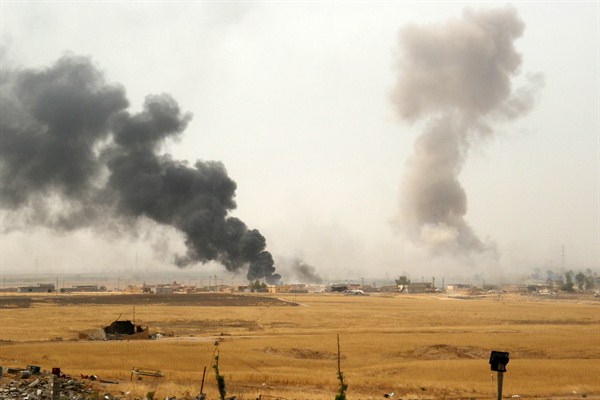During a visit to Washington in April, Qubad Talabani, the deputy prime minister of Iraq’s semiautonomous Kurdistan Regional Government, or KRG, declared that “the real existential threat facing Kurdistan today is the state of [its] economy.” The KRG’s monthly deficit had risen above $100 million, adding more strains on an already-teetering economy.
Four months later, the KRG continues to face a financial crisis as oil production slows amid attacks from the Islamic State, refineries fall offline, and export quality drops. Kurdish leaders consider their region’s oil fields to be the foundation for an envisaged state. But falling oil revenue leaves them with few economic options. The current mess also exacerbates widening political divisions between the KRG’s main political parties. If left unaddressed, these interrelated issues threaten to unmoor Kurdish unity and destroy Irbil’s national project.
Over the past decade, the KRG has amassed estimated oil reserves of more than 45 million barrels. In 2015, it sent 421,000 barrels per day through the Ceyhan pipeline to Turkey. Yet this trade has only funded elusive prosperity. Since February 2015, exports have slowed because of threats from the Islamic State, which has attacked Kurdish oil infrastructure, along with technical malfunctions. During the same period, global oil prices plunged from nearly $100 per barrel to under $50. For more than four months in 2015 and 2016, Irbil could not pay civil sector salaries and was forced to reduce pensions for government employees, who make up more than half the Kurdish workforce.

